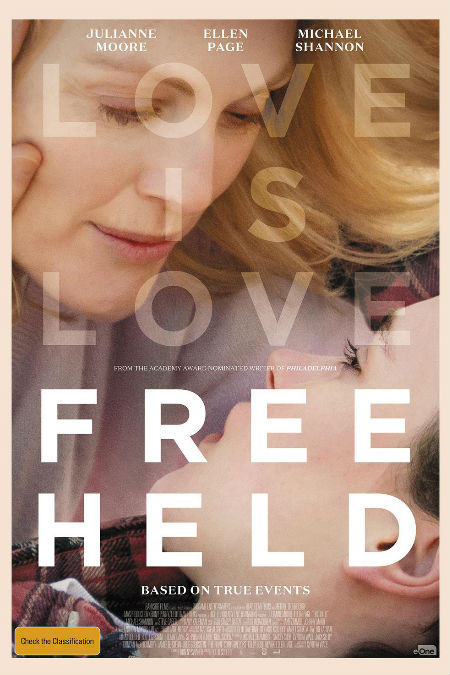
One of the great catch cries of the campaign for marriage equality around the world has been that love is love, no matter what your sexual orientation may be.
While that claim is fiercely disputed by some, the truth is that when human beings fall in love, they are all possessed by the same need to protect and look after the one they love, to forgo their own selfish needs in preference to their partner’s needs.
It’s a natural part of being human and in love, and it’s on full, touching display in the Peter Sollett-directed Freeheld, which retells the story of police lieutenant Laurel Hester (Julianne Moore) and her all-too-public 2002-2005 battle to have her pension transferred to her same sex partner Stacie Andree, when she’s diagnosed with late stage 4 lung cancer.
Initially expecting her request to be actioned with an administrative tick of the pen, she is horrified when what she believes is a straightforward request, one accorded to straight couples without a second thought, is quickly turned down by the conservative “Freeholders” (think city council) of Ocean County, New Jersey, in the process turning the once-closeted and risk-averse police officer into a national cause célèbre.
Hester had spent 23 highly-decorated years on the police force doing her best to stay under the radar, all too aware that as a woman, and a lesbian, she was already behind the eight ball when it came to career advancement in a white male, heterosexual-dominated institution.
Staying in the closet, though limiting in all the ways you might expect, was the only way, she had reasoned, to ensure that the two strikes against her – being a woman and gay – could be limited to just one.
All that falls by the way side when she’s diagnosed with cancer.
Her resulting resolve to fight for equality, and to ensure that the woman she loves would be able to remain in the home they shared, takes precedence over any concerns about privacy or the forward successful forward momentum of a career that has effectively been rendered null and void by her unexpected death sentence.
Hester is backed unconditionally by her partner Dane Wells (Michael Shannon), who rallies to her side without barely a second thought after she almost simultaneously comes out to him and reveals her cancer diagnosis, and is given hilariously vociferous support by Steven Goldstein (Steve Carell), founder and chair of Garden State Equality who convinces the publicity-shy Hester to go for broke and take the fight to the reluctant-to-change Freeholders.
But what takes centre stage in Freeheld is not, surprisingly the eventually-successful battle to have LGBTQI public employees treated the same as their heterosexual counterparts, a battle which is couched, as you might expect, by screenwriter Ron Nyswaner, as an epic, inspiring David vs. Goliath struggle.
Rather it is the love story between Hester and her younger partner Stacie that forms the centrepiece of the narrative, a love story every bit as powerful and motivating as it is unexpected for the two quite different women.
Knowing why this law-changing fight for equal rights took place is critically important to understanding why a woman, who had fought being in the spotlight all her life, is willing to go to such a concerted effort to not only stay in it but make a history-making point while she’s there.
Even so, this understandable narrative emphasis provides Freeheld‘s major drawback, and one that lessens its impact somewhat.
While a great deal of time is deservedly given over to the relationship between Hester and Andree, one that is deeply moving in pretty much every way but is commendably leavened with some real life tension, this comes at the expense of any real organic growth in the battle between Hester and her allies, and the Freeholders.
In fact, at the inevitably triumphant ending – it is based on a true story where Hester successfully fought antiquated laws and changed the rules for all public employees in New Jersey – it feels as if the Freeholders move from willful intransigence to capitulation with not much in the way of effort at all.
That’s not the case of course, and to be fair, Freeheld doesn’t pretend Hester’s win was a walk in the park, but the scenes with the Freeholders and the work by Shannon and Goldstein in particular feel somewhat underdone and too briefly covered at times.
Having said that, you ultimately leave Freeheld buoyed by the deep love between Hester and Andree, the fact that each cared more about the other than themselves and that this selfless dynamic ultimately created history in ways neither woman, both of whom approached the fight from completely different angles, could ever have imagined.